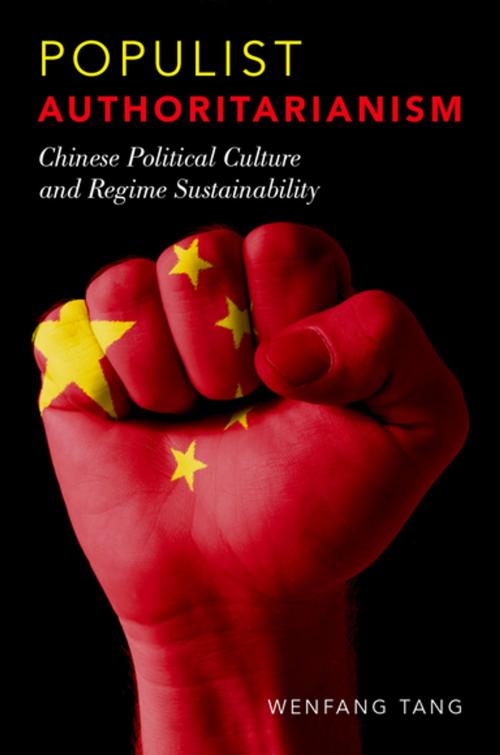Populist Authoritarianism
Chinese Political Culture and Regime Sustainability
Nonfiction, Social & Cultural Studies, Political Science, Government, Communism & Socialism, International| Author: | Wenfang Tang | ISBN: | 9780190490812 |
| Publisher: | Oxford University Press | Publication: | January 4, 2016 |
| Imprint: | Oxford University Press | Language: | English |
| Author: | Wenfang Tang |
| ISBN: | 9780190490812 |
| Publisher: | Oxford University Press |
| Publication: | January 4, 2016 |
| Imprint: | Oxford University Press |
| Language: | English |
Populist Authoritarianism focuses on the Chinese Communist Party, which governs the world's largest population in a single-party authoritarian state. Wenfang Tang attempts to explain the seemingly contradictory trends of the increasing number of protests on the one hand, and the results of public opinion surveys that consistently show strong government support on the other hand. The book points to the continuity from the CCP's revolutionary experiences to its current governing style, even though China has changed in many ways on the surface in the post-Mao era. The book proposes a theoretical framework of Populist Authoritarianism with six key elements, including the Mass Line ideology, accumulation of social capital, public political activism and contentious politics, a hyper-responsive government, weak political and civil institutions, and a high level of regime trust. These traits of Populist Authoritarianism are supported by empirical evidence drawn from multiple public opinion surveys conducted from 1987 to 2015. Although the CCP currently enjoys strong public support, such a system is inherently vulnerable due to its institutional deficiency. Public opinion can swing violently due to policy failure and the up and down of a leader or an elite faction. The drastic change of public opinion cannot be filtered through political institutions such as elections and the rule of law, creating system-wide political earthquakes.
Populist Authoritarianism focuses on the Chinese Communist Party, which governs the world's largest population in a single-party authoritarian state. Wenfang Tang attempts to explain the seemingly contradictory trends of the increasing number of protests on the one hand, and the results of public opinion surveys that consistently show strong government support on the other hand. The book points to the continuity from the CCP's revolutionary experiences to its current governing style, even though China has changed in many ways on the surface in the post-Mao era. The book proposes a theoretical framework of Populist Authoritarianism with six key elements, including the Mass Line ideology, accumulation of social capital, public political activism and contentious politics, a hyper-responsive government, weak political and civil institutions, and a high level of regime trust. These traits of Populist Authoritarianism are supported by empirical evidence drawn from multiple public opinion surveys conducted from 1987 to 2015. Although the CCP currently enjoys strong public support, such a system is inherently vulnerable due to its institutional deficiency. Public opinion can swing violently due to policy failure and the up and down of a leader or an elite faction. The drastic change of public opinion cannot be filtered through political institutions such as elections and the rule of law, creating system-wide political earthquakes.















